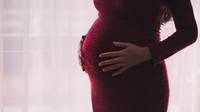
Parental Attitudes
How quickly and how successfully newborn infants will adjust to postnatal life is greatly influenced by parental attitudes. This is the fifth condition that influences the kind of adjustments infants make to postnatal life.
When parental attitudes are unfavourable, for whatever the reason, they are reflected in treatment of the infant that militates against successful adjustments to postnatal life. By contrast, parents whose attitudes are favourable treat the infant in ways that encourage good adjustment. Parent-infant interactions are not characterized by the emotional tension and nervousness that are normally present when parental attitudes are unfavourable. A relaxed mother, for example, usually produces more milk than one who is tense and nervous, and this helps the infant adjust to a new method of taking nourishment.
While maternal attitudes are, unquestionably, more important than paternal attitudes in determining the newborn infant’s adjustment to postnatal life, paternal attitudes cannot be disregarded. Indirectly, they are important because of the effect they have on maternal attitudes. Directly, they are important because of the effect they have on the way fathers handle their newborn infants and on the way they assist in their care after they are brought home from the hospital. Fathers who are present during delivery usually have more favourable attitudes toward their children than do those who do not share the childbirth experience with their partners.
Parental attitudes toward the newborn infant are influenced by attitudes developed during the prenatal period, by conditions associated with birth, and by the care given the infant are leaving the hospital. Some conditions have a greater effect on maternal attitudes while others have a greater impact on paternal attitudes. These conditions are briefly described in below:
Conditions that Affect Parental Attitudes Toward the Infant
Preparation for Parental Duties
Parents who have had experience in caring for earlier-born children, taken courses given in prenatal clinics, or baby-sat for older siblings or neighbor’s children have more confidence in assuming the parental role than do those who have lacked any such experiences.
The Childbirth Experience
The mother’s attitude toward the infant is more favourable when the childbirth experience has been relatively easy than when it is prolonged, difficult, and followed by physical complications. The father’s attitude is also colored by his wife’s childbirth experience.
The Mother’s Physical Condition after Childbirth
The more quickly a mother recovers after child-birth, the more favourable her attitude toward the infant will be and the more confident she will be of her ability to fulfil her maternal role satisfactorily.
Concern about Expenses
When complications arise at childbirth, such as a caesarean operation, prematurity which necessitates special nursing care and a prolonged stay in the hospital, or some defect brought on at birth or apparent at birth, parental attitudes will be unfavourably affected by concern about the unexpected expenses involved.
Evidence of Defects
If there is a suspicion or actual evidence that the infant is defective in some respect, parental attitudes will be colored by disappointment, concern about the future normality of the infant, and the added expense the defect will cost.
The Infant’s Postnatal Adjustments
The faster and the better the infant adjusts to the postnatal environment, the more favourable the parent’s attitudes will be.
Infantile Crying
Infants who cry excessively and without apparent reason encourage the development of unfavourable attitudes not only on the part of parents but also on the part of all family members.
Parental Resentments against Work, Privations, and Expenses
When parents find that the care of the infant requires more work, privations, and expenses than they had anticipated, their attitudes toward the infant will be far less favourable than they would have been had they prepared themselves for the conditions that parenthood normally imposes.
Concern about Normality
If an infant must remain in the hospital longer than the usual stay, as a result of prematurity, some defect, or poor postnatal adjustments, parents are not only concerned about the infant’s normality but also about their ability to care for the infant after leaving the hospital.
Concern about Survival
When an infant must remain in the hospital longer than the usual time and be given special attention, parents become concerned about the infant’s survival. If the infant does survive, parents tend to be overprotective when they assume responsibility for its care.


















